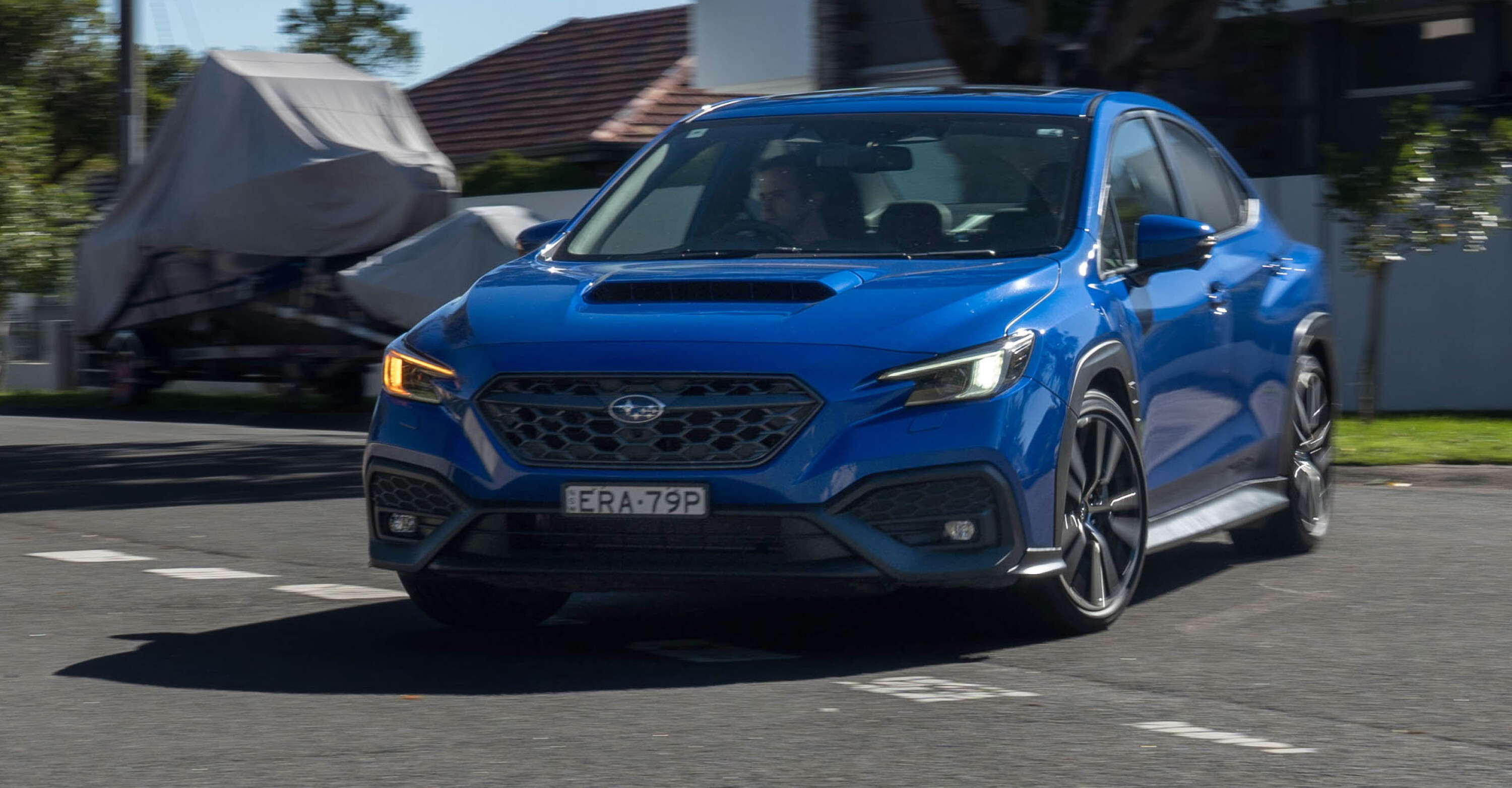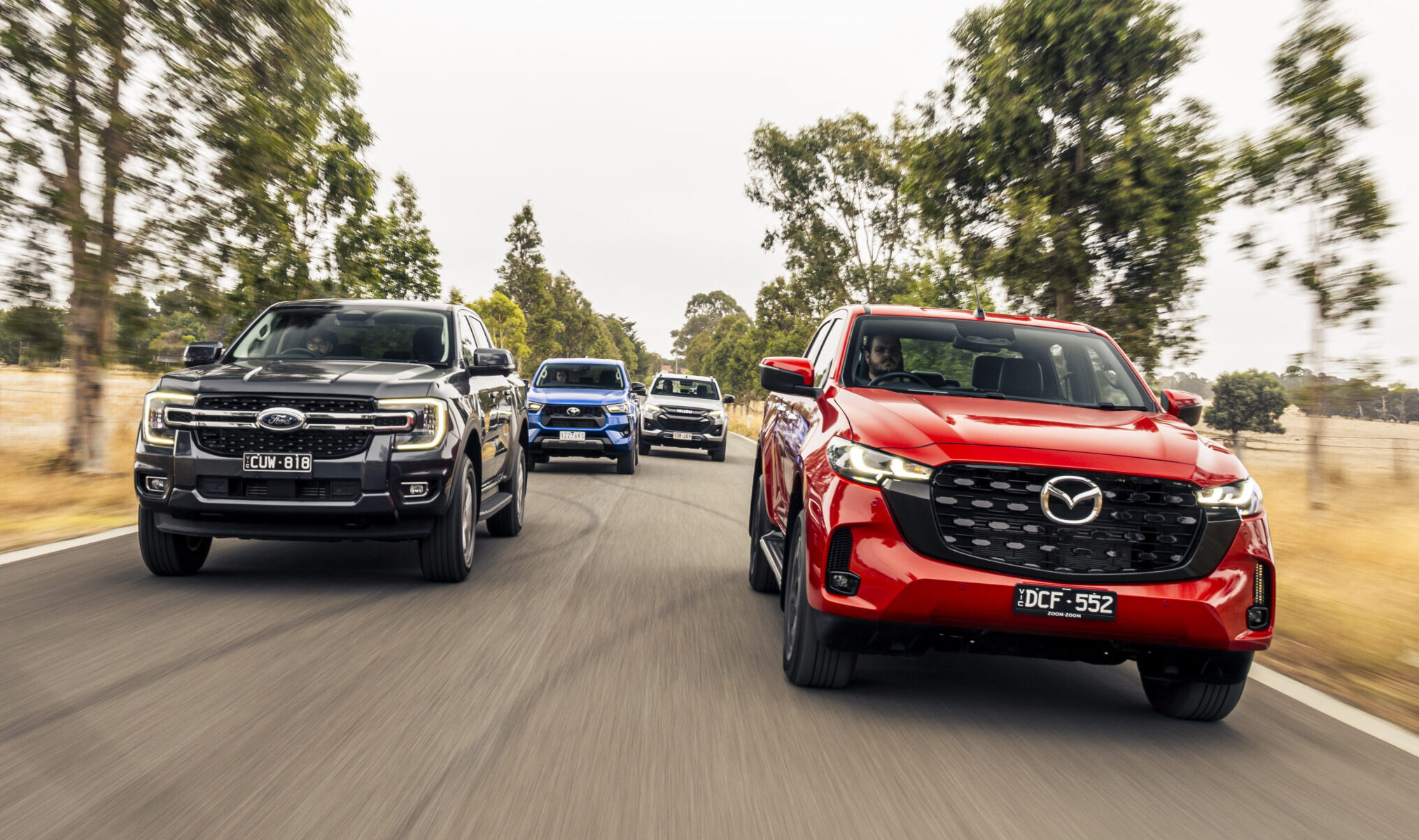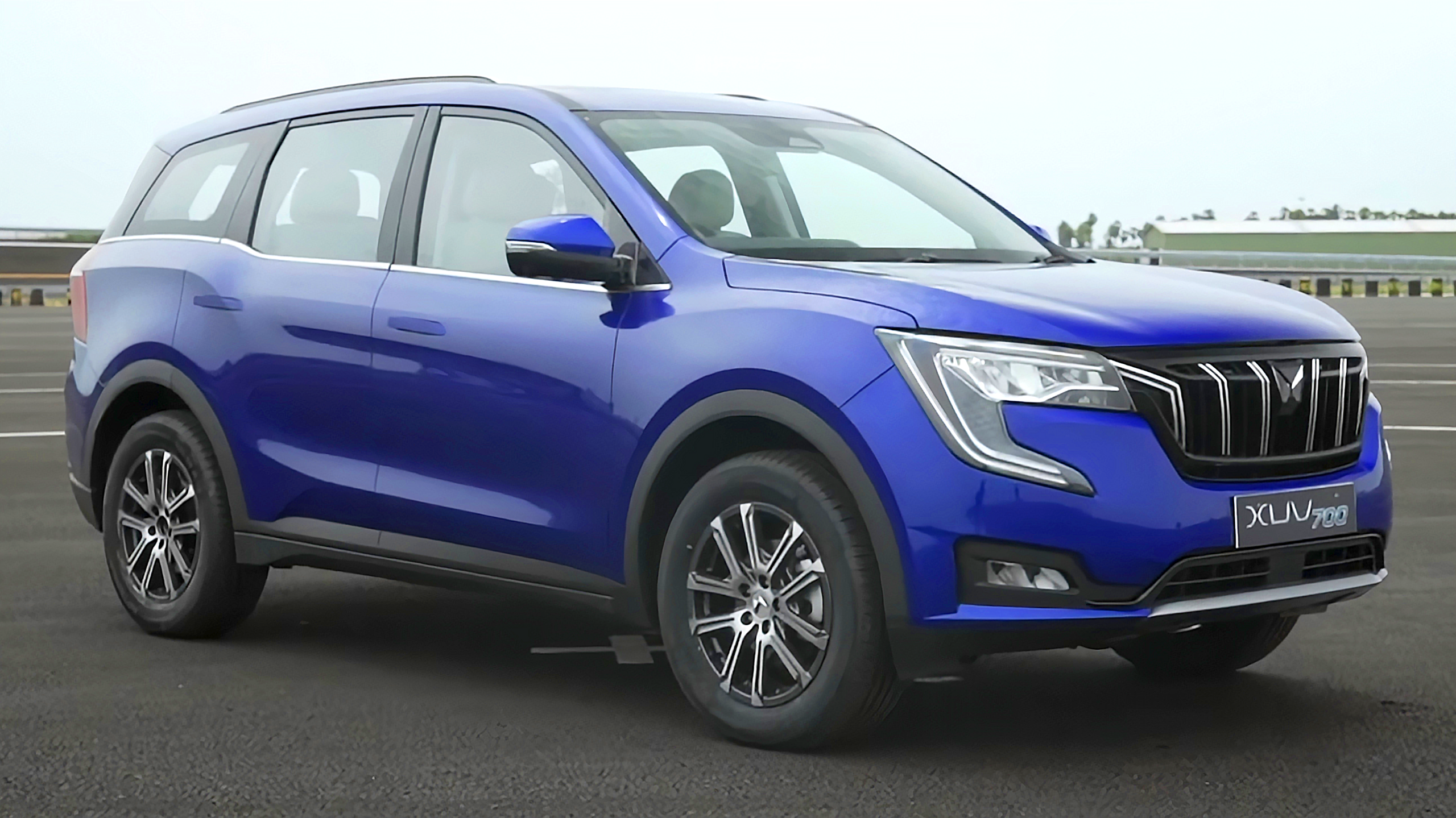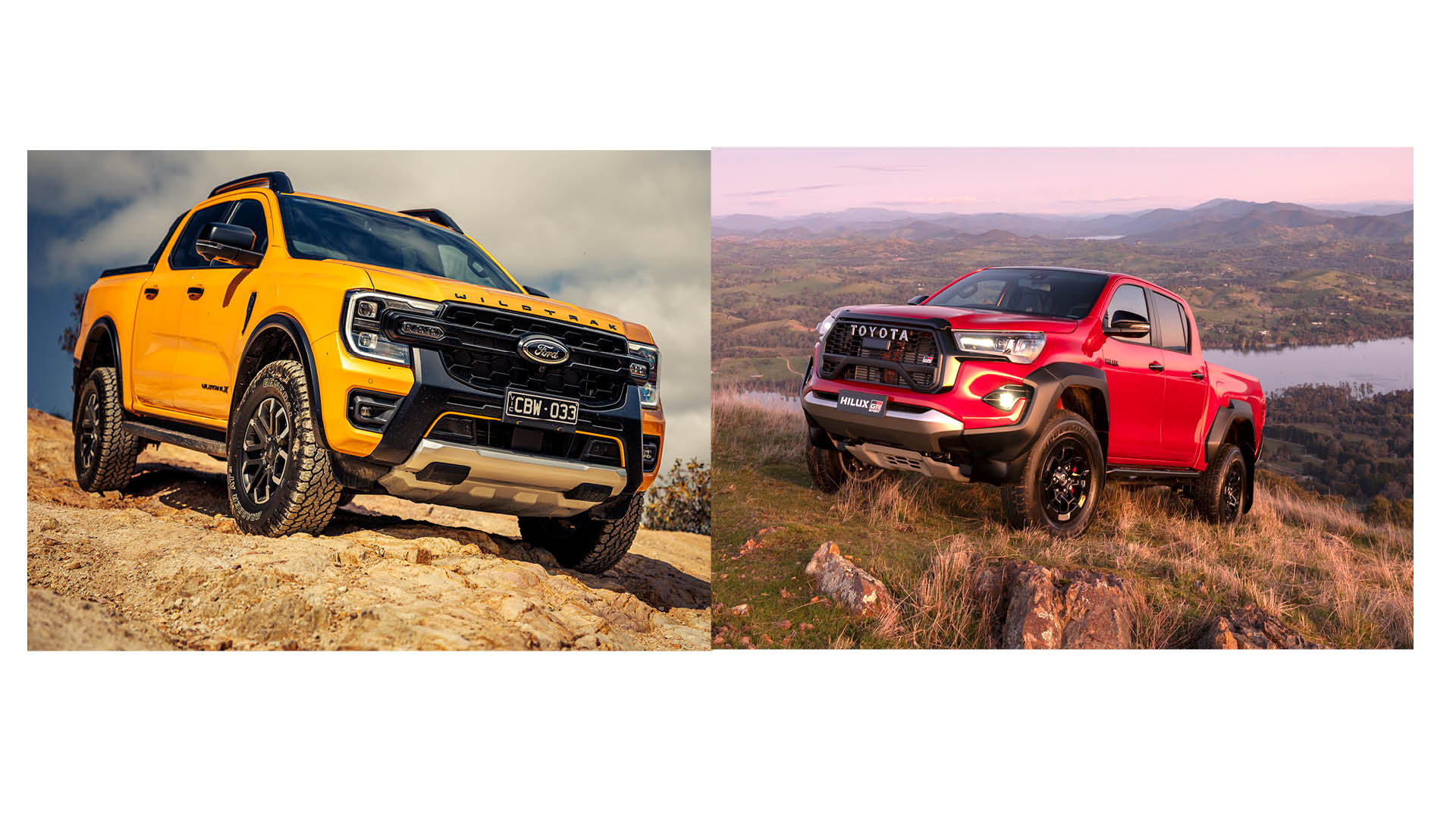Score breakdown
Things we like
- Plenty of equipment
- Powerful engine
- Good chassis
Not so much
- CVT blunts performance
- Sharp# drive mode a little too abrupt
- Hard to hear the flat-four
People of a certain age still smile reflexively when the WRX name is uttered. People of a certain age – or at least me – also have to remove the name Impreza before it.
The reason I’m telling you this is that I think the WRX tS with automatic continuously variable transmission (CVT) is for that exact cohort.
As we’re ageing and priorities change, three pedals can be a chore, or for some families, a dealbreaker. Also pertinent is that those who wanted – or had – a first-gen WRX in its heyday, probably have a bit more cash to splash, remembering the relatively sparse genesis of the breed.
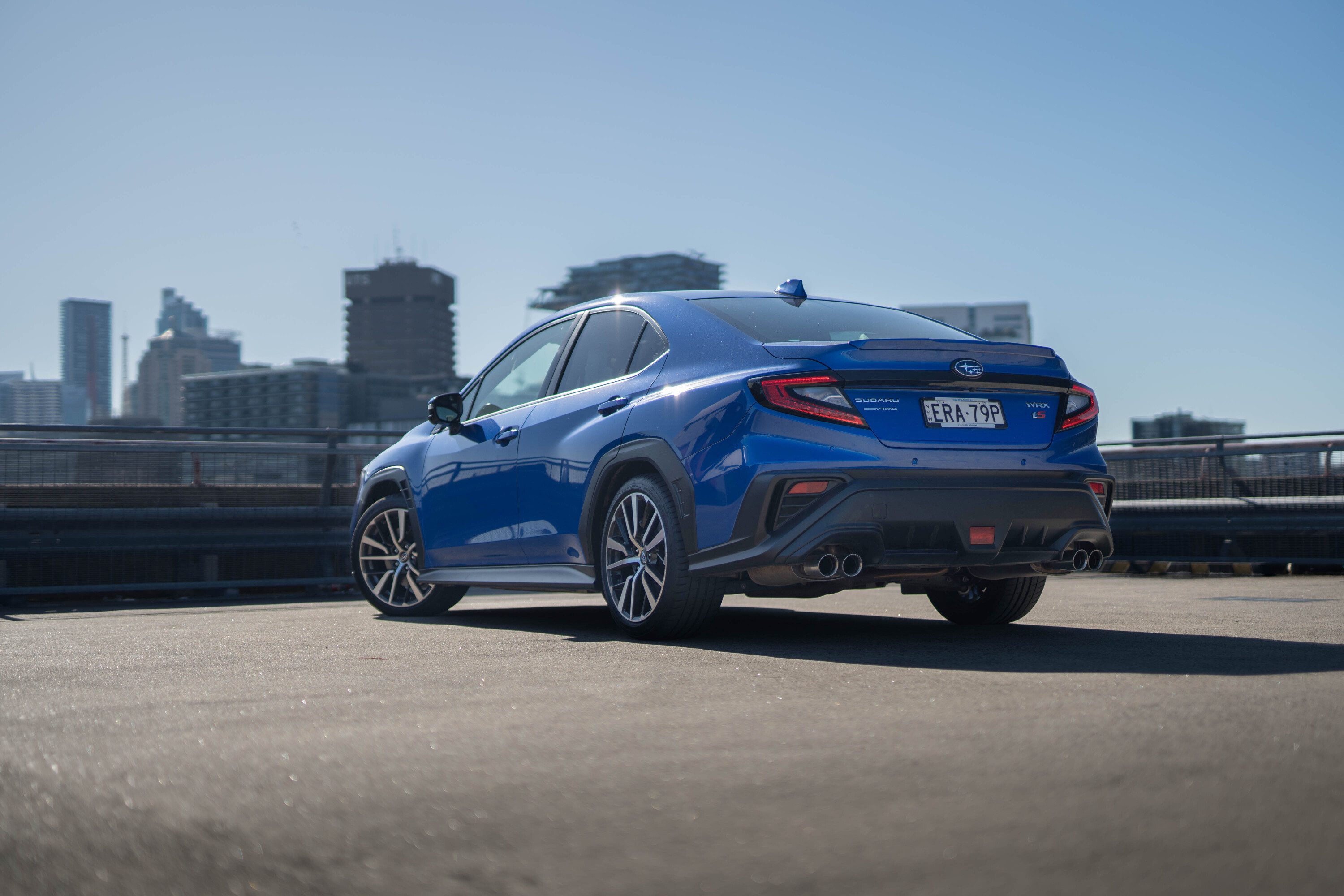
JUMP AHEAD
- How much is it, and what do you get?
- How do rivals compare on value?
- Interior comfort, space and storage
- What is it like to drive?
- How much fuel does it use?
- How safe is it?
- Warranty and running costs
- VERDICT
- Specifications
How much is it, and what do you get?
At $57,990 before on-road costs, you’re paying a lot more than I did for a WRX in 1999 – but you’re getting a much longer list of features, even when you account for the passage of time.
Given nearly 25 years have passed, that’s probably not a terrible deal.
| 2023 Subaru WRX tS sedan standard features | |
|---|---|
| 18-inch alloy wheels | 10-speaker stereo |
| DAB+ digital radio | Apple CarPlay |
| Android Auto | Keyless entry and start |
| Dual-zone climate control | 11.6-inch media screen |
| Adaptive cruise control | Auto LED headlights |
| Auto wipers | Powered boot lid |
| Leather steering wheel | Ultrasuede interior |
| Face recognition | Heated and powered front seats |
| Sunroof | Satellite navigation |
| Adaptive damping | Space-saver spare |
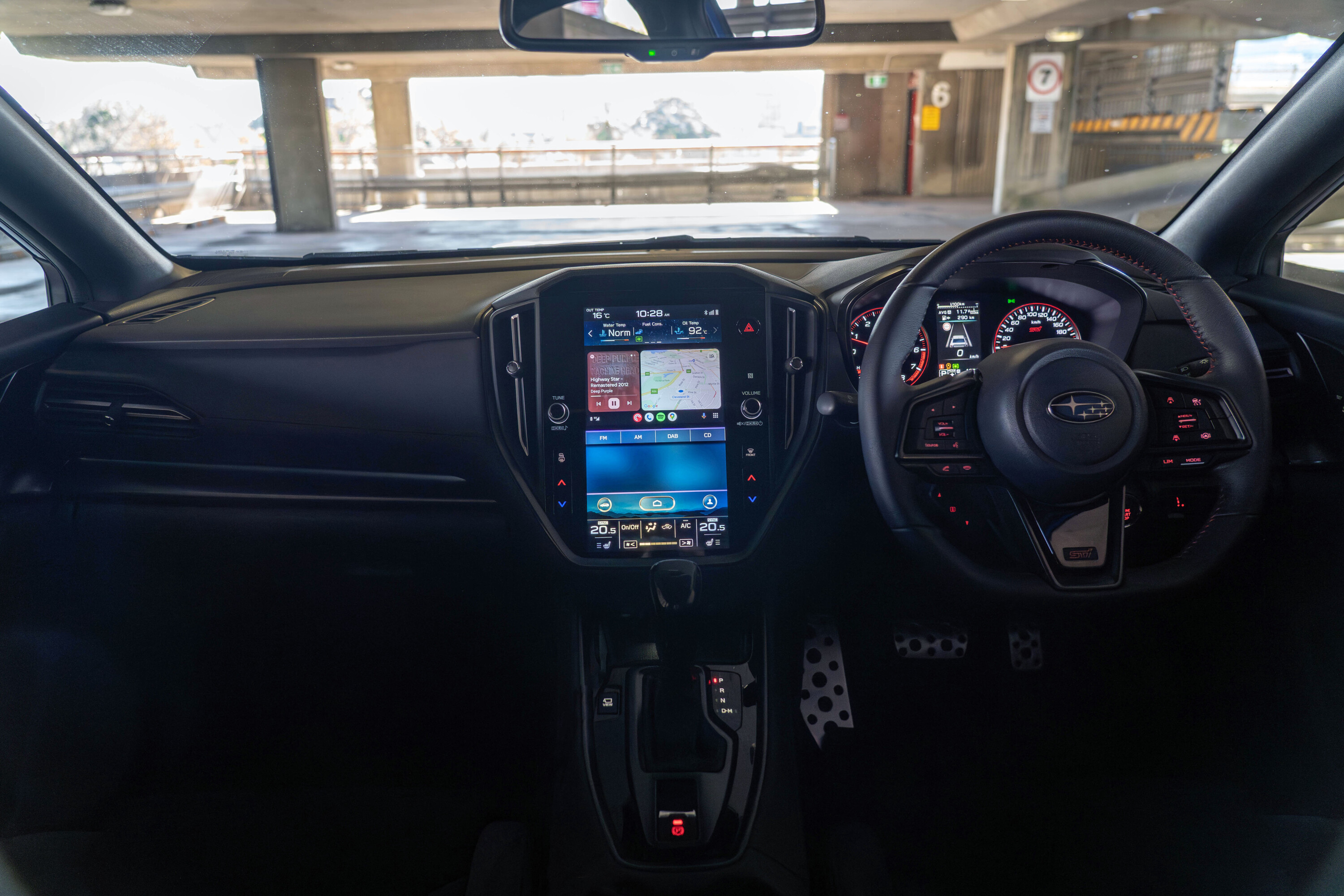
Subaru’s Starlink software comes up on the portrait-oriented 11.6-inch touchscreen.
It kind of reminded me of a Cyberman’s head from Doctor Who, with the air vents sticking out the sides like handles. The screen is okay but the graphics are not entirely convincing and the climate controls were a bit annoying to use.
Ultrasuede, if you’re wondering, is a synthetic suede (like Alcantara) that was very nice on the seats and grippy in the corners.
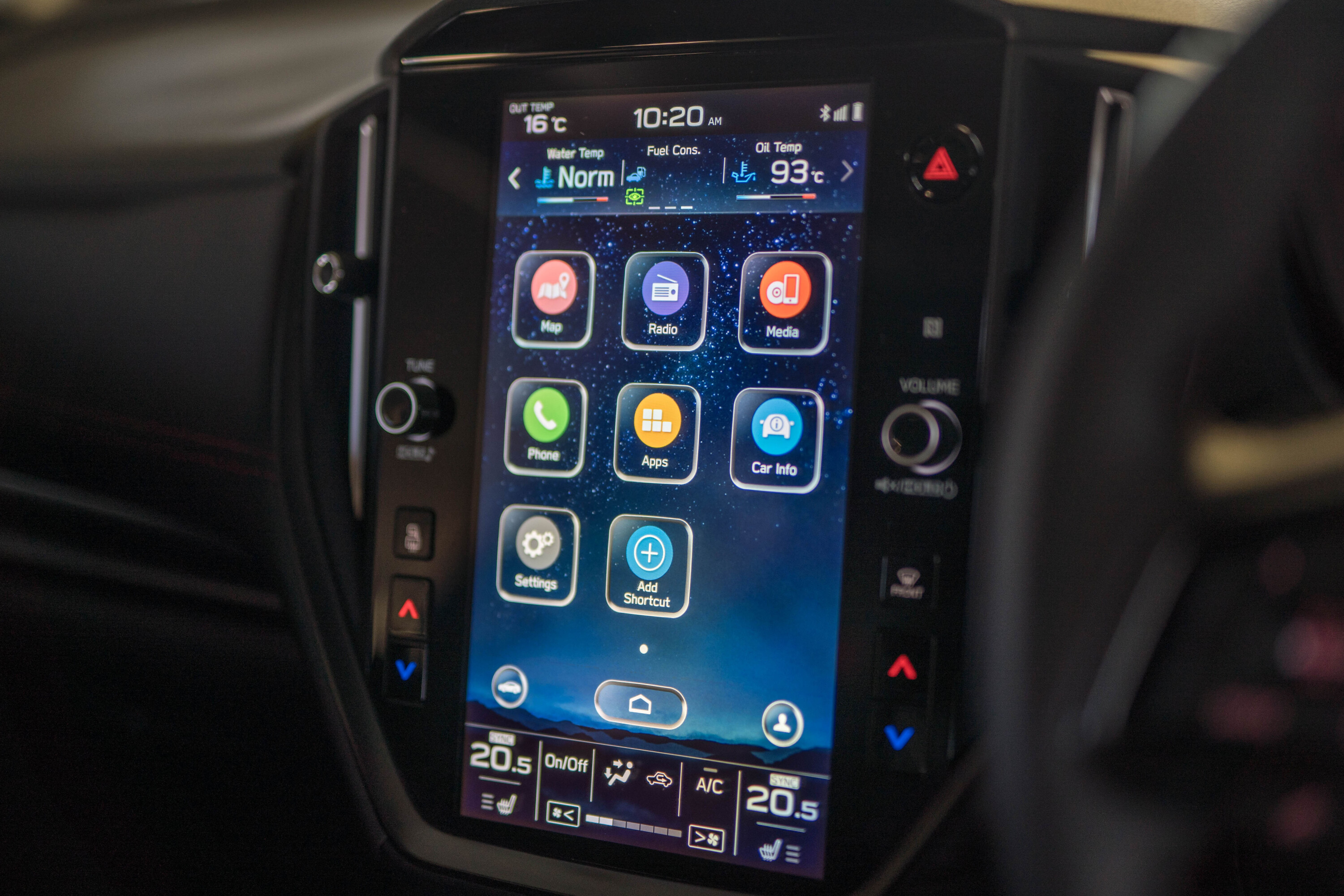
How do rivals compare on value?
Direct rivals for the WRX are a bit thin on the ground these days. But, since you asked…
Hyundai’s i30 N sedan is probably the closest obvious competitor to the WRX. While its rear wheels trundle along behind without any propulsion, it sports a 206kW/392Nm 2.0-litre turbo-petrol engine and eight-speed dual-clutch transmission for $50,200 plus on-road costs.
You could step up to Audi’s S3, which does have all-wheel drive (and a seven-speed dual-clutch auto) but that’s substantially pricier than either the WRX or i30 N at around $74,000 before on-road costs.
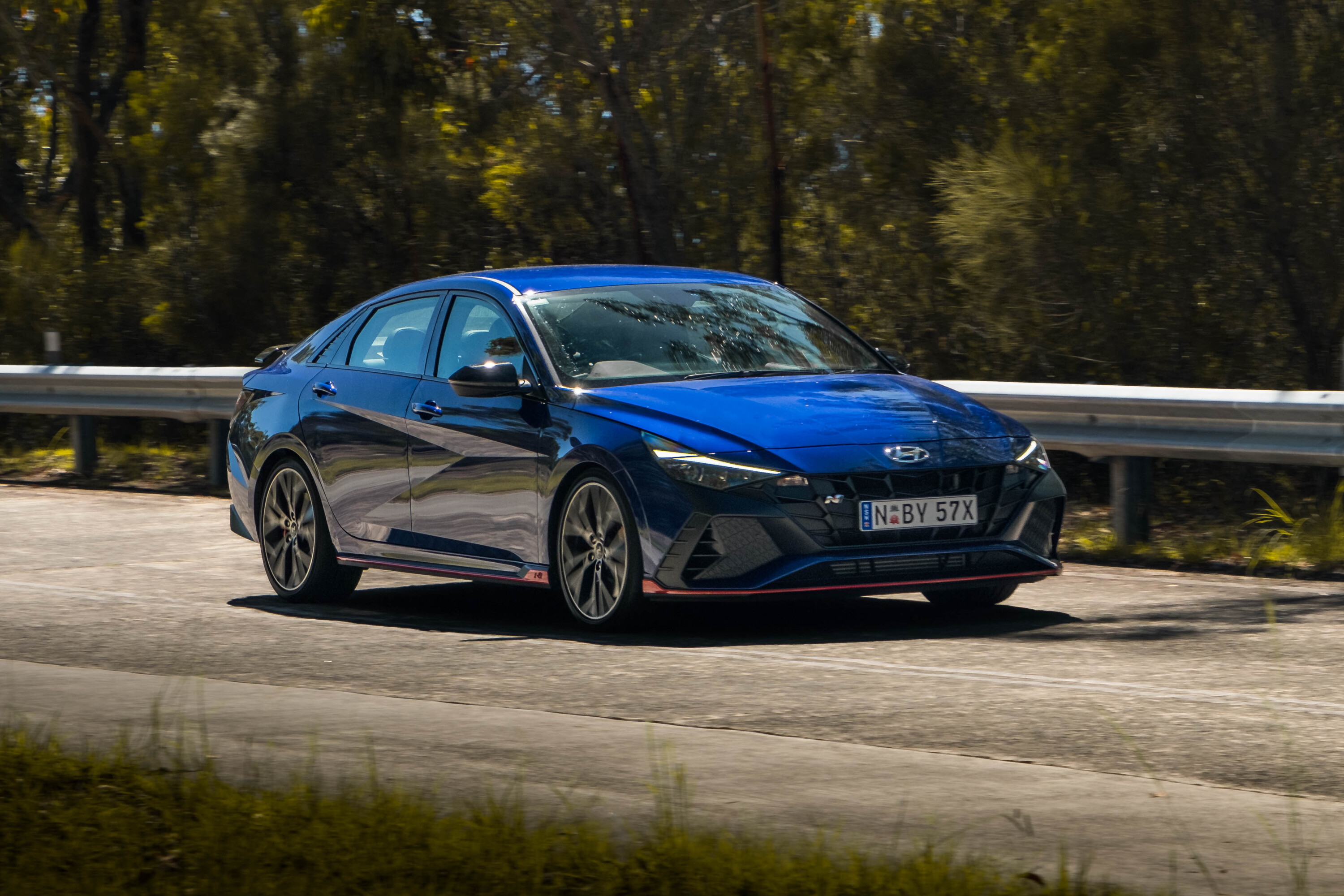
Interior comfort, space and storage
One of the enduring qualities of the WRX has been its practicality.
Cars hadn’t ever really been this quick and capable while being this comfortable. This generation of WRX is even roomier and more comfortable than the old one, especially for rear-seat passengers. I found the rear seat to be very comfortable, well-shaped and, in the tS, it also has air vents.
You’ll be held in very nicely (as long as you’re in the outboard seats), and have access to an armrest with a cup holder and bottle holders in the doors. The transmission tunnel and the almost vestigial middle seat will put paid to a fifth occupant enjoying themselves, though.
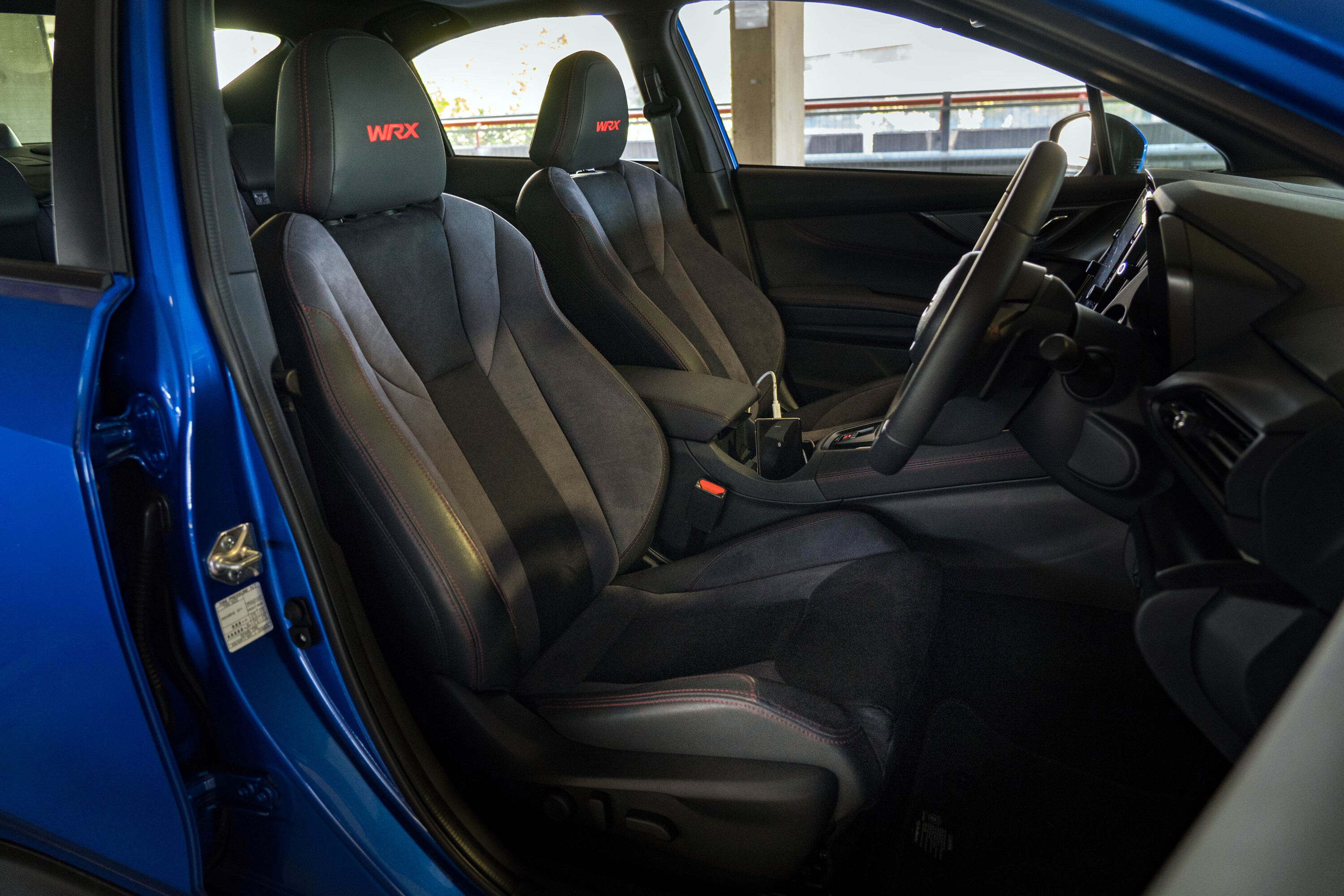
Up front, you get a pair of cup holders, a good-sized centre console, a place to put your phone and bottle holders in the doors.
The front seats are a little more accommodating than my MY00 (and have been for some years) and, as I’ve mentioned, the Ultrasuede upholstery is very nice and would be my preference over leather on a hot day. They’re grippy enough – despite being built for a wider range of body types – and didn’t cause any aches or pains on a long drive.
Up front, you get a pair of cup holders, a good-sized centre console, a place to put your phone and bottle holders in the doors.
The boot is pretty small for its class, offering a 411-litre capacity. If you need more, you could always consider the WRX wagon, making its long-awaited return after the weird diversion of the Levorg.
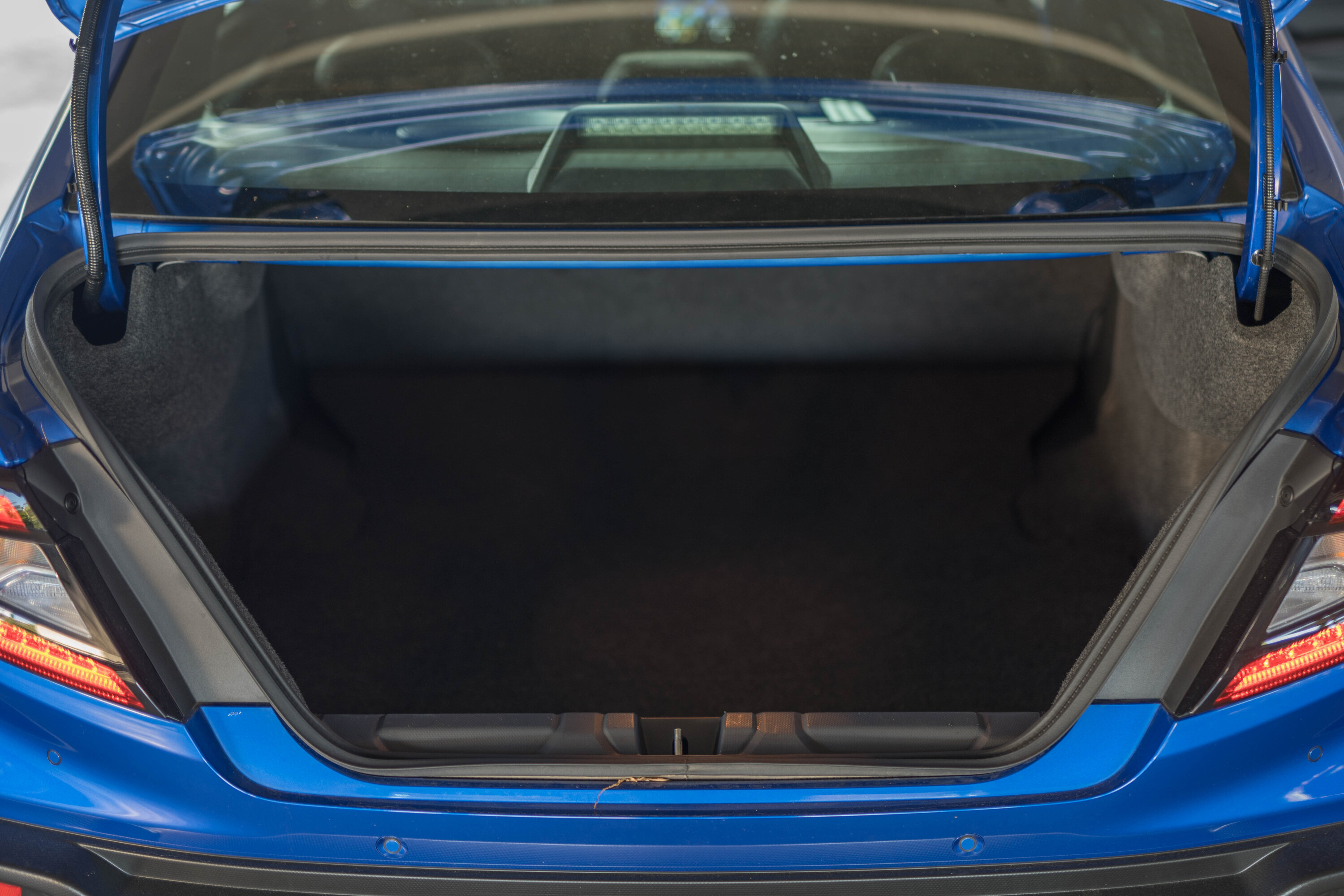
What is it like to drive?
Sometimes an automatic transmission can radically alter the character of a car in a way that is hard to put your finger on.
I have no such difficulty with the WRX. Having snuck in a drive of a friend’s manual WRX a few weeks ago, I had something with which to compare this CVT-equipped machine. I quite enjoyed that car, more so than the non-STI WRX of the previous generation which I thought had strayed a long way from the winning formula. The old car just didn’t hang together the way the more expensive STI did.
Notchy gearchange aside, I quite liked the fluidity of the manual but then again, the winning formula has never been a totally slick experience. You have always had to work for it and that’s a compliment. It’s fun.
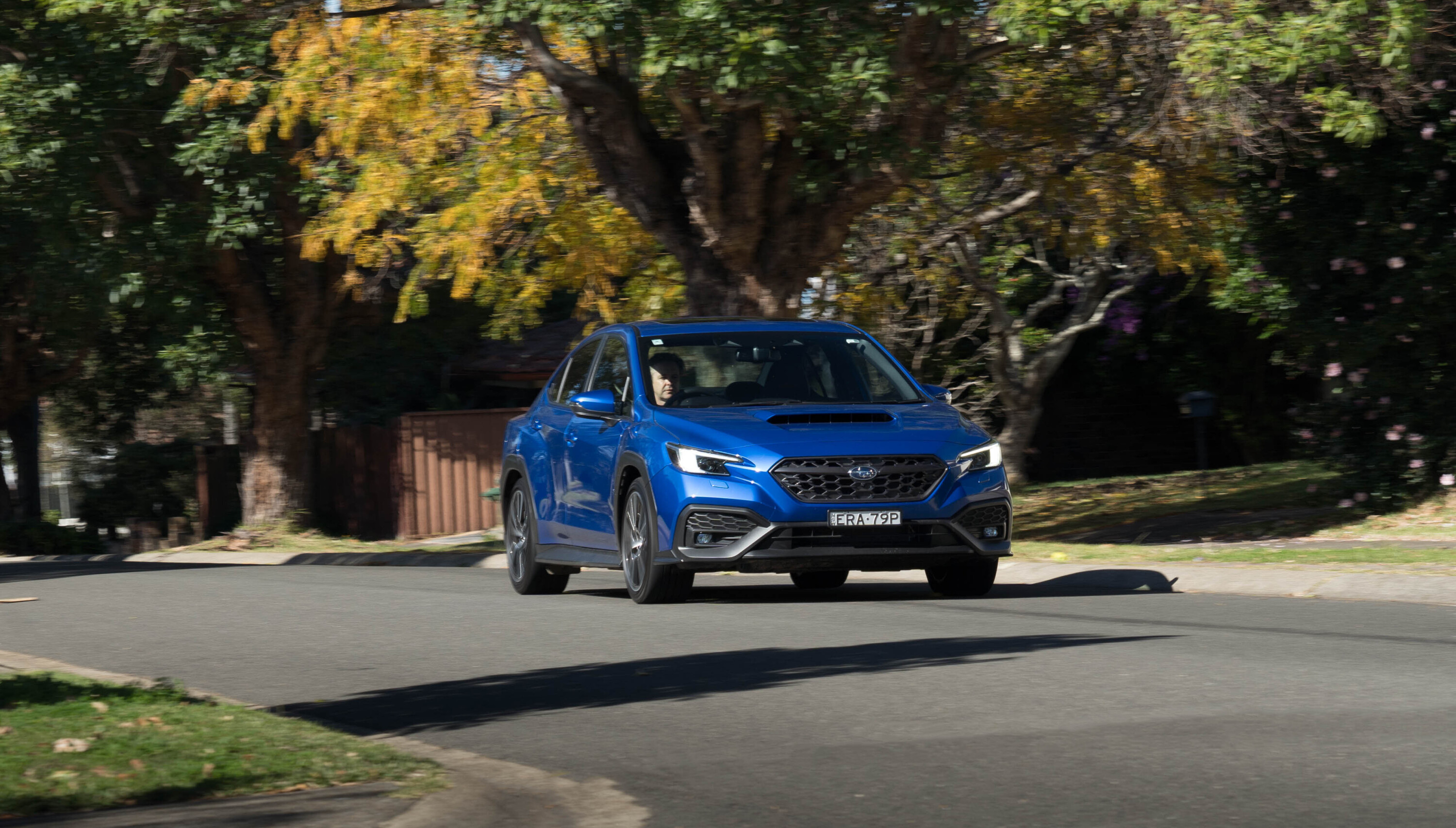
The auto, well… it’s different.
| 2023 Subaru WRX tS sedan drivetrain | |
|---|---|
| Engine | 2.4-litre horizontally-opposed four-cylinder turbo-petrol |
| Transmission | Continuously variable, 8 simulated ratios |
| Power | 202kW @ 5600rpm |
| Torque | 350Nm @ 2000-5200rpm |
| 0-100km/h | 6.2 seconds |
Setting aside a personal dislike for CVTs, this one is fine in normal driving. It’s smooth and quiet and doesn’t flare like the last CVT turbo from Subaru I drove, the fairly maligned Levorg.
The WRX has a matrix of options for the different modes, more so on the tS with its adaptive dampers. I like the adaptive dampers and it’s a shame they’re not available on more WRX variants. A standard or RS Rex is a bit hard to take under 70km/h, with a fidgety firm ride that is quite tiring. The tS smooths all that out and makes it a more pleasant place to be for more of the time.
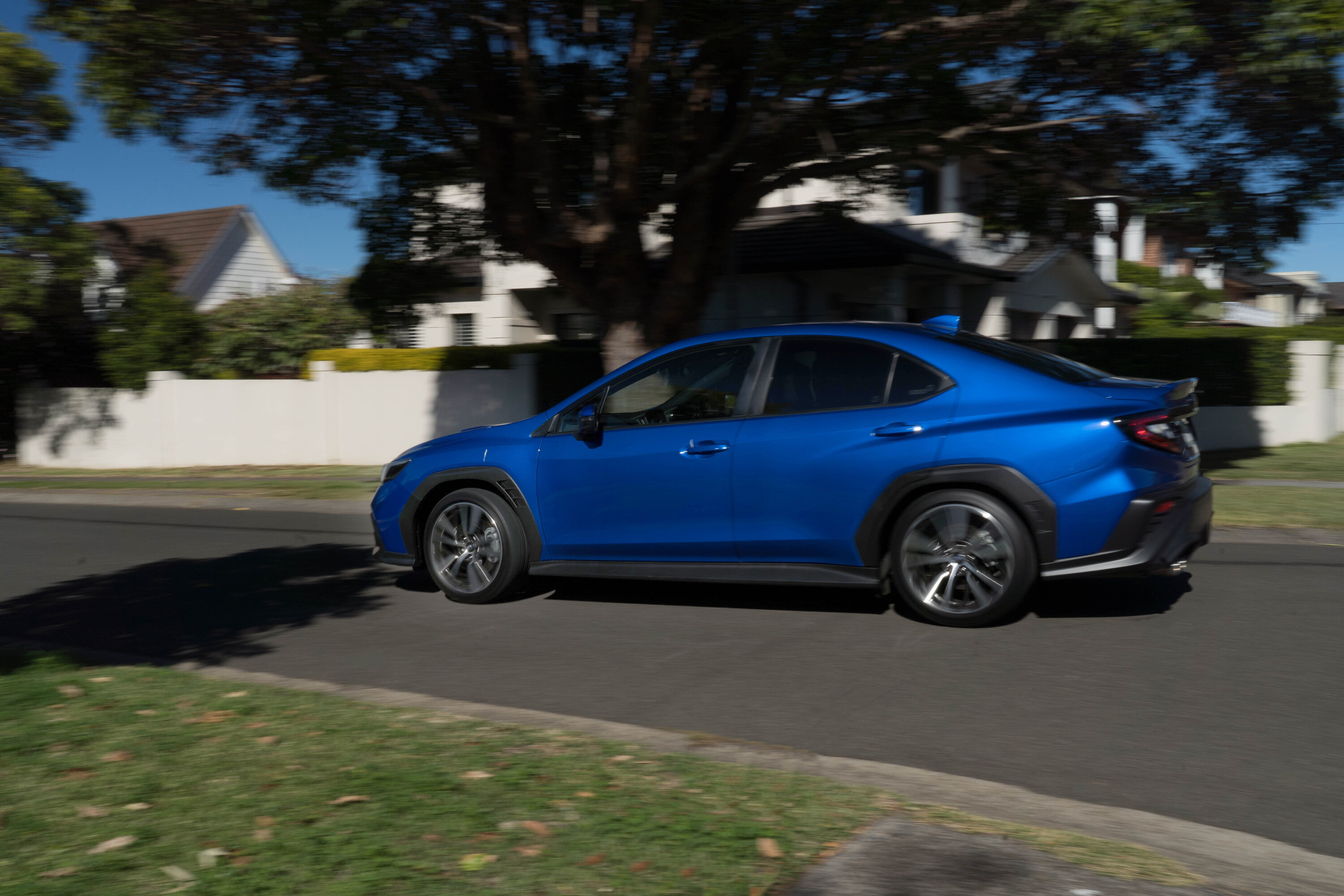
A number of modes are available but the only pre-cooked one I had any time for was Sport.
The others were either too doughy – this is where the transmission’s character change comes in – or in Sport# (as in sharp), way too aggressive and unpleasant on the shifts, particularly the downshift.
When you’re in the mood for a bit of send-it-Sam action, the auto doesn’t really want to play. Whereas the manual WRX is keen for a bit of hustling, the auto just doesn’t want to, paddle-shifters in use or not.
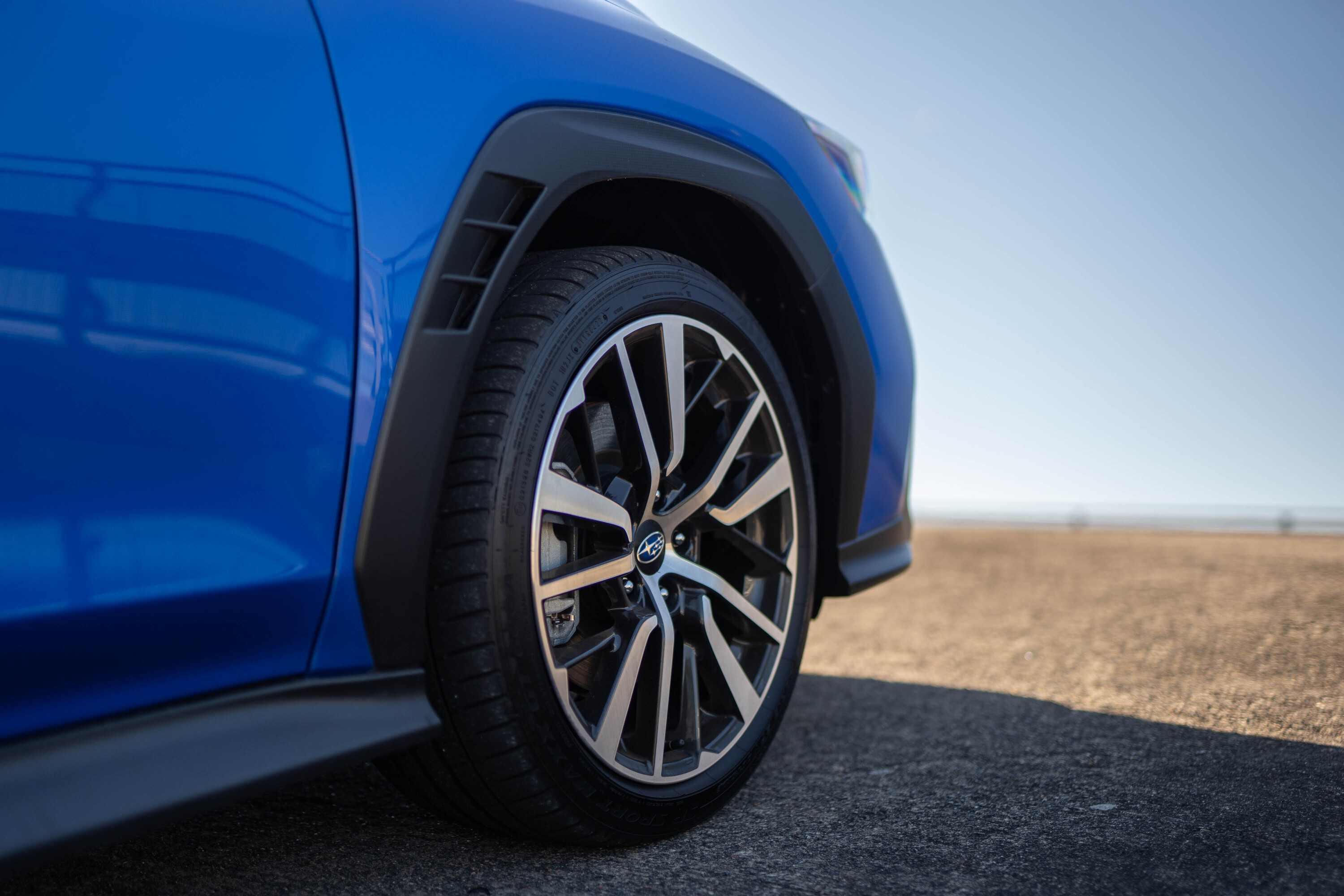
I found myself not all that keen when trying to hustle the WRX along but instead found myself accepting it was a car where you set up a flow rather than looking to attack corners.
And that’s fine – completely and utterly and for 99 per cent of the time preferable – but you’re not likely to get the kind of thrills from a CVT tS that the WRX name suggests.
It’s more of a fast sedan that honestly doesn’t feel fast (that transmission again) so is more in the tradition of executive express than boy racer.
If any of the terms in this section have left you scratching your head, these articles will help bring you up to speed!
- What is a Powertrain or Drivetrain?
- Power vs torque
- Car suspension explained
- Automatic transmissions (‘gearboxes’) explained
- Chassis control systems explained
- Car vs Ute vs SUV: How the vehicle you buy should guide the way you drive
The WRX claims an ADR combined-cycle figure of 8.5L/100km.
| 2023 Subaru WRX tS sedan fuel economy | |
|---|---|
| Fuel consumption (claimed) | 8.5L/100km |
| Fuel consumption (on test, at the pump) | 8.7L/100km |
| Fuel tank capacity | 63 litres |
| Real world range | 724km |
| Fuel type | 95 RON |
We got remarkably close to that official number although Dan Gardner bettered it by some margin in a wagon he drove about a year ago. That’s pretty good going.
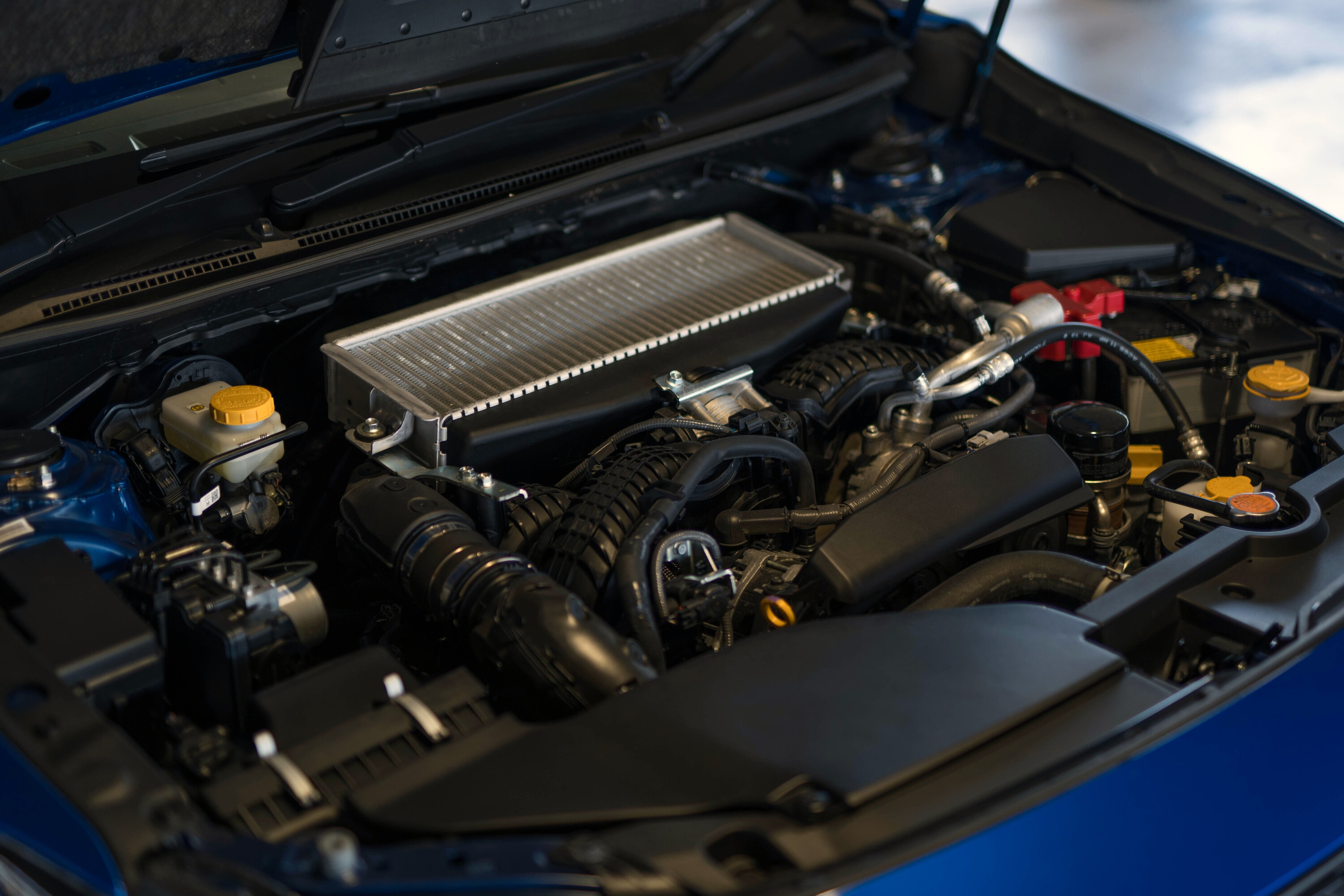
How safe is it?
This current generation of WRX is yet to be awarded an ANCAP safety rating.
| 2023 Subaru WRX tS sedan safety features | |
|---|---|
| Eight airbags (including driveru2019s knee airbag) | ABS |
| Stability and traction controls | Driver attention detection |
| Lane departure warning | Forward auto emergency braking (AEB) |
| Pre-collision throttle management | Lane departure prevention |
| Lead vehicle start alert | Lane sway warning |
| Speed-sign recognition | Intelligent speed limiter |
| Auto emergency steering | Front and rear parking cameras |
| Reverse cross-traffic alert | Reverse AEB |
Some obvious omissions preclude it from a full-fat five-star rating, such as the lack of auto emergency braking (AEB) in either direction on the manual models, which stuffs it for the AEB-equipped autos.
It’s a bit of a glaring omission when other brands can get this kind of tech into their performance models, including Subaru’s sports car partner Toyota in the Corolla GR but confirmation that the manual BRZ will finally inherit the auto’s EyeSight safety tech suite provides some comfort that the DIY WRX is next in line.
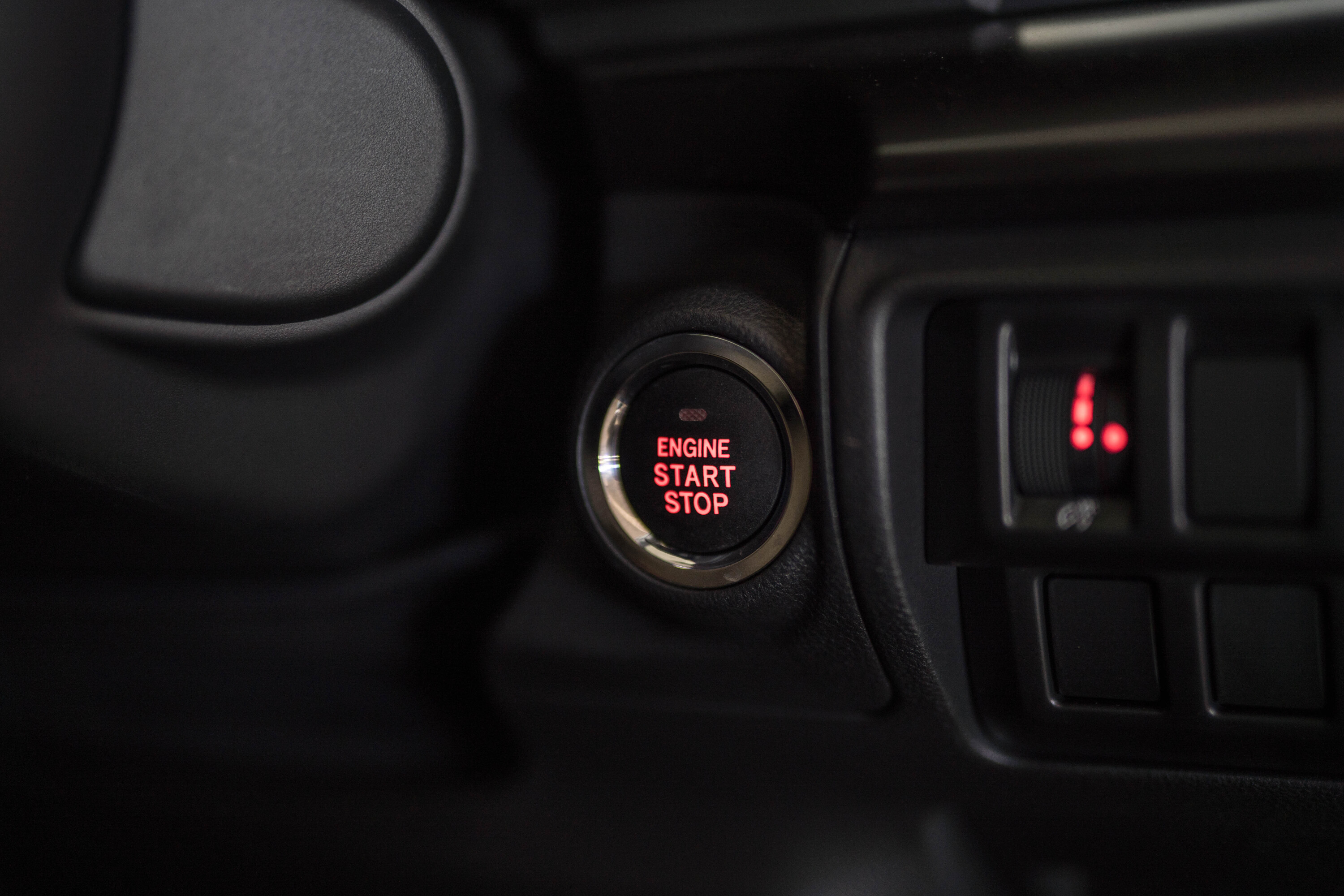
Warranty and running costs
The WRX comes with Subaru’s five-year/unlimited-kilometre warranty.
Servicing comes around every 12 months/15,000km, which is worth knowing if you’re cross-shopping with, say, a Hyundai i30 N that offers 5000 fewer kilometres betwixt visits.
Pre-paid service plans are available, with a three-year duration costing $1349.48 (June 2023) and the five-year option $2536.36. Those two figures average out at $449 and $507 per service respectively, the fifth interval (the D service) echoing the extra expense of a Boeing 747’s D check.
The PAYG fixed-price servicing costs are the same as of June 2023 but pre-paying means you’re done and dusted and can roll it into your finance should you be so inclined.
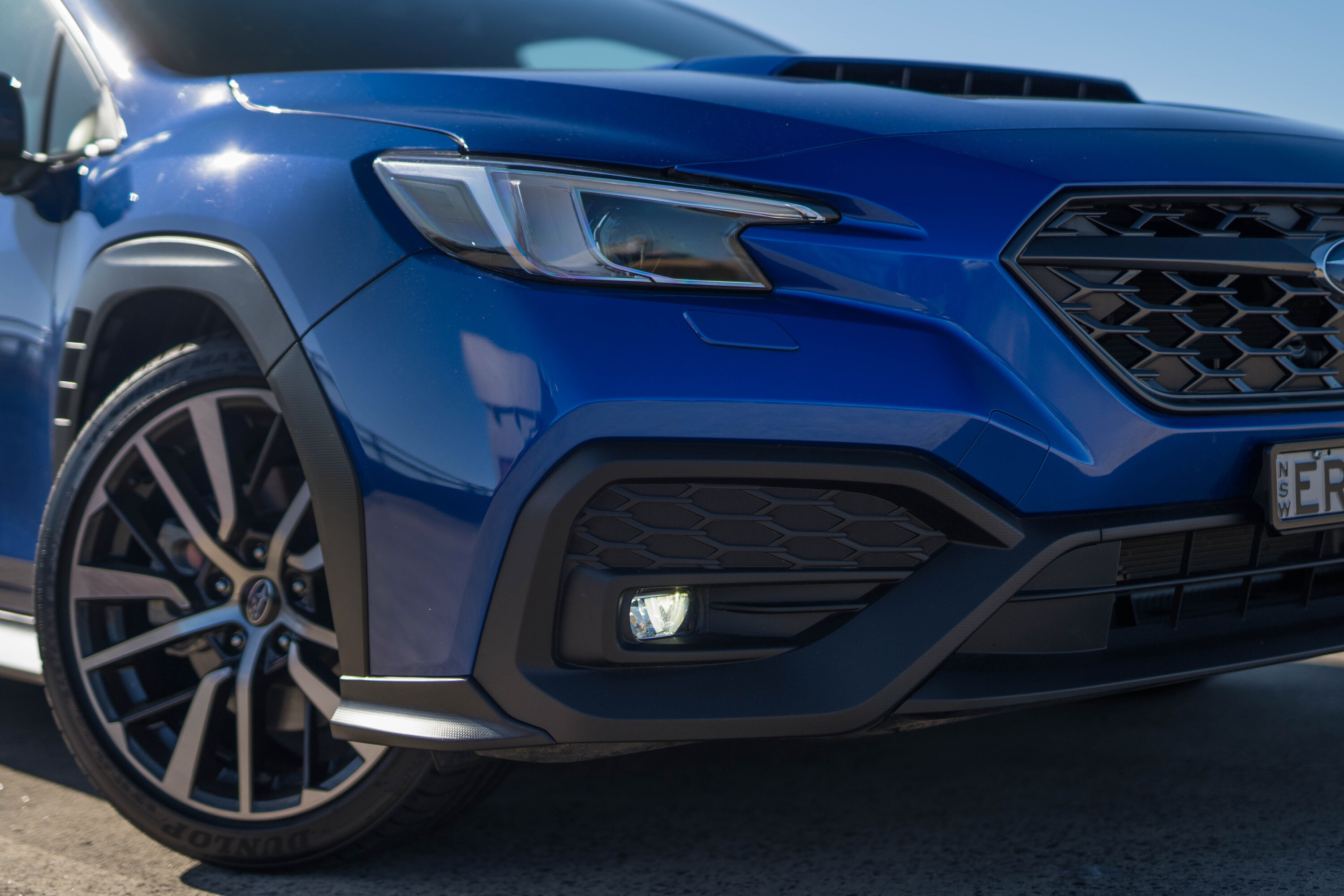
VERDICT
I said this car was more in the tradition of an executive express and wondered who this car might be aimed at.
During my twenties, I owned a lovely blue MY00 WRX and loved it, despite its need for hustling. It had great seats, went like the clappers and sounded great. And it was a perfectly acceptable everyday car.
As is the 2023 WRX tS, but it’s far more firmly in that everyday car mentality than mine was. No auto WRX has ever really been much of a firebreather – Subaru never did the twin-clutch dance – and so this car carries on that tradition.
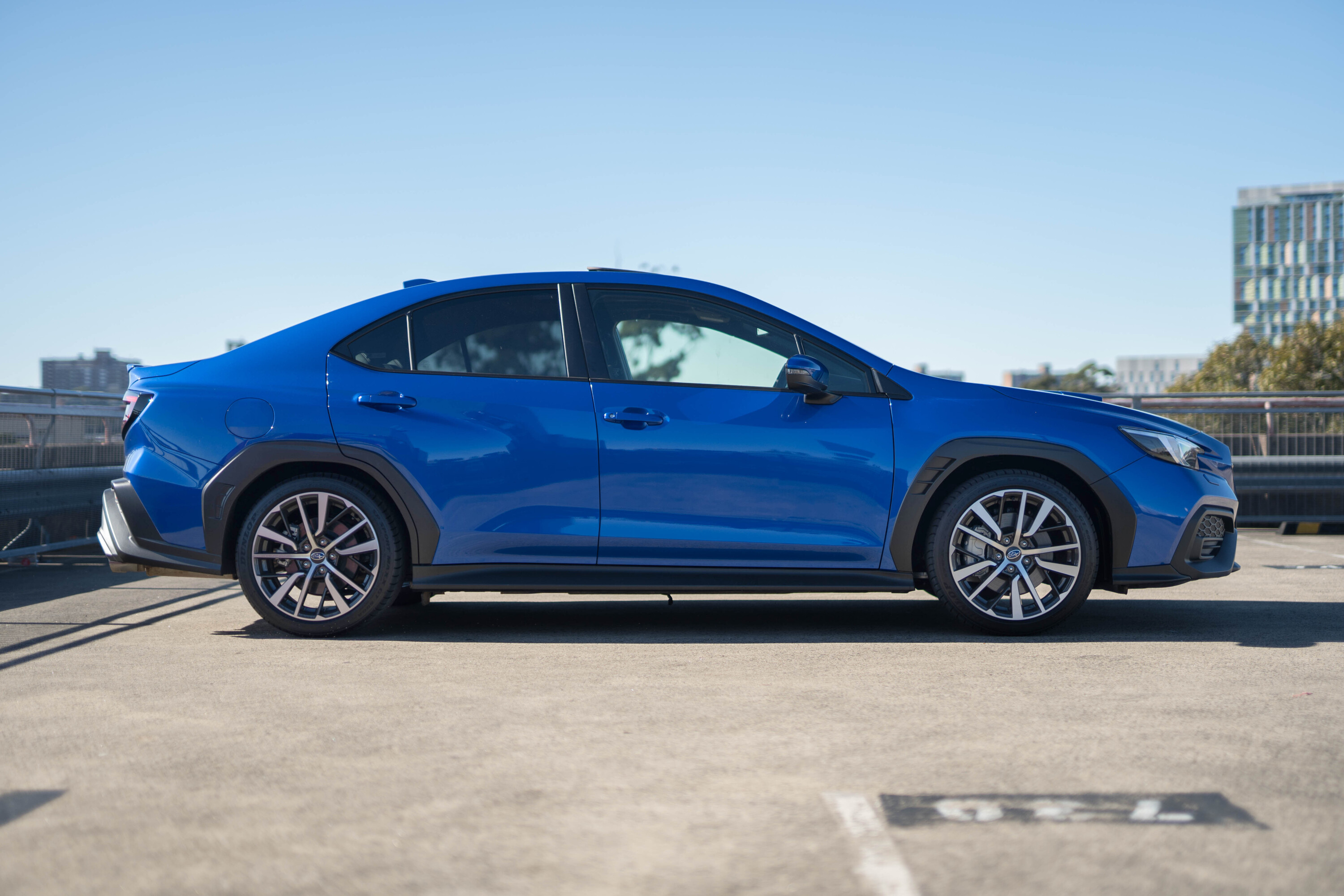
It’s not a shame, either. It has a good interior, plenty of gear, a not-awful price and is the best-looking WRX in years – which isn’t a high bar to clear, but there we are.
Those who want a bit of fire, limber up the left leg and get cracking. If you wanted a WRX 25 years ago but the years have not been so kind, you’ll probably love this car.
| 2023 Subaru WRX tS sedan specifications | |
|---|---|
| Body | 5-door, 5-seat small sedan |
| Drive | all-wheel |
| Engine | 2.4-litre horizontally-opposed four-cylinder turbo-petrol |
| Transmission | Continuously variable, 8 simulated ratios |
| Power | 202kW @ 5600rpm |
| Torque | 350Nm @ 2000-5200rpm |
| Bore stroke (mm) | 94.0 x 86.0 |
| Compression ratio | 10.6 : 1.0 |
| 0-100km/h | 6.2 sec (claimed) |
| Fuel consumption | 8.5L/100km (combined) |
| Weight | 1516kg (tare) |
| Suspension | MacPherson struts front/double wishbone rear, adaptive damping |
| L/W/H | 4670mm/1825mm/1465mm |
| Wheelbase | 2675mm |
| Brakes | Ventilated disc front / ventilated disc rear |
| Tyres | 245/40R18 |
| Wheels | 18-inch alloy (space-saver spare) |
| Price | $57,990 + on-road costs |
Score breakdown
Things we like
- Plenty of equipment
- Powerful engine
- Good chassis
Not so much
- CVT blunts performance
- Sharp# drive mode a little too abrupt
- Hard to hear the flat-four
We recommend
-
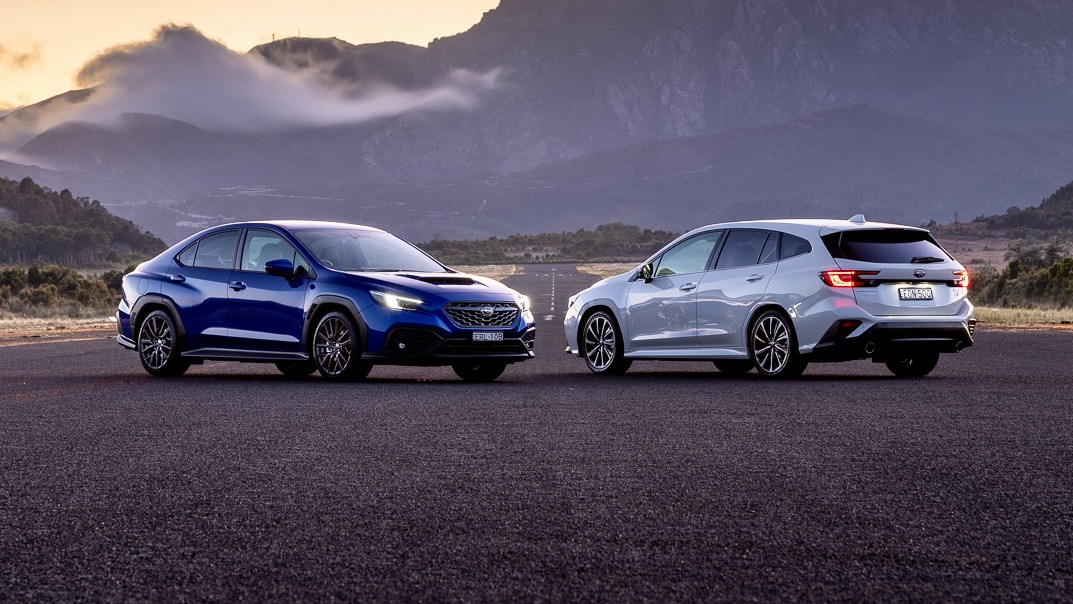 News
News2022 Subaru WRX pricing and features
Pricing and equipment for the new 2022 WRX sedan and wagon have been announced as the vehicle goes on sale in Australia
-
 Comparisons
Comparisons2022 Subaru WRX vs Toyota GR Yaris Rallye comparison: Road and gravel!
Subaru’s reborn WRX is quicker, smarter and more luxurious but can it take down Toyota’s WRC inspired GR Rallye? Don your rally clobber, this one’s going to get dirty…
-
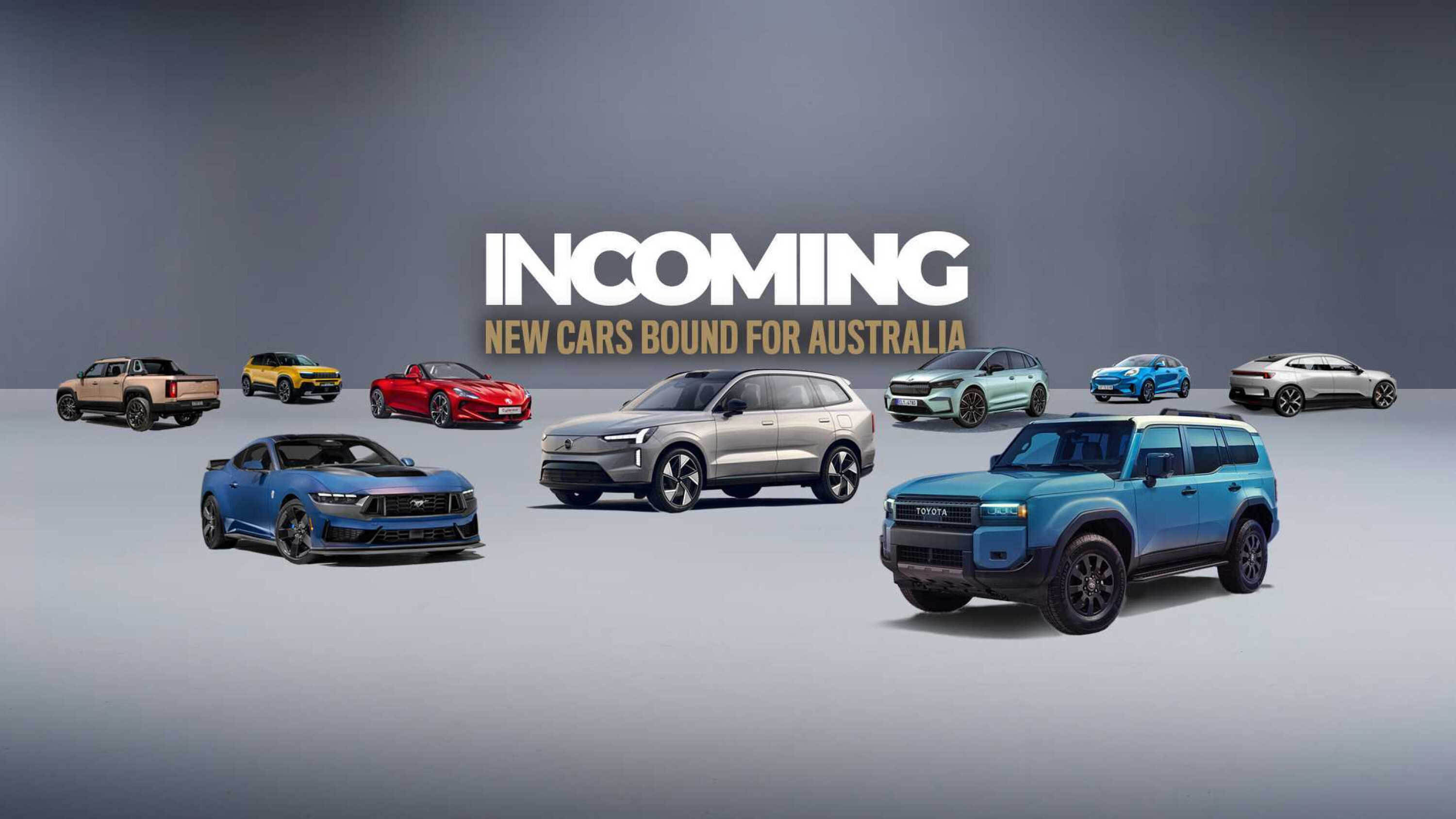 News
News2025 New Car Calendar: All the new cars coming to Australia
Take a look at our list of what is expected to launch in Australia in 2025 – plus those we might not see locally just yet


